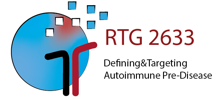Kristina Manzula
Nutrition as a Therapeutic Strategy in Autoimmunity: Targeting IgG Glycosylation
In inflammatory autoimmune diseases like rheumatoid arthritis (RA), IgG glycosylation exhibits dynamic shifts. With disease onset and progression, non-galactosylated and non-sialylated antibody levels increase. Antibody glycosylation modulates IgG interactions with Fcγ receptors, influencing effector functions; specifically, sialylation diminishes IgG affinity for activating FcγRs (e.g., FcγRI), thereby reducing pro-inflammatory signaling, while enhancing binding to inhibitory FcγRs (e.g., FcγRIIb) and promoting anti-inflammatory effects. Therapeutic interventions, including biologics (e.g., anti-TNFα) and intravenous immunoglobulin (IVIG), can alter the aberrant IgG glycosylation profile, resulting in clinical remission. Interestingly, IVIG’s anti-inflammatory efficacy is primarily attributed to its high IgG sialylation. However, methods that precisely control IgG glycosylation profiles in vivo are still lacking. Recent studies indicate that diet significantly impacts IgG glycosylation, suggesting that plant-derived substances (PS) or targeted dietary modifications may prevent or reverse the transition from preclinical autoimmunity to established autoimmune disease.
Identification of specific PS and diets that modulate IgG glycosylation towards anti-inflammatory immune status in ovalbumin plus adjuvant immunized mice. Investigation of prophylactic and therapeutic potential of identified PS in mice with experimental RA and epidermolysis bullosa acquisita (EBA). Exploration of underlying mechanisms of action. We will administer specific PS to mice via drinking water to analyse their influence on IgG glycosylation, inflammatory markers, T and B cell responses as well as disease development/severity in the mentioned mouse models. Also, we plan to compare different diets within the context of IgG glycosylation in mice. Further, we aim to gain a profound understanding of the mechanisms of action by comprehensive cellular analyses, including characterization of immune cell subsets, quantification of relevant enzyme and receptor expression, and measurement of cytokine and signaling molecule secretion. Total and/or antigen-specific IgG Fc glycosylation patterns will be investigated by HPLC and/or LC-MS and immune cells by flow cytometry.

- People
- Doctoral researchers
- Merabell Adem
- Katja Adriany
- Farbod Bahreini
- Aderiike Babarinsa
- Isha Barve
- Estelle Bergmann
- Swayanka Biswas
- Noa Linn Brauckmann
- Christoph Brieske
- Jana Buhre
- David De Luca Laredo
- Felicitas Eichlohn
- Kaan Ersoy
- Ferdinand Gebauer
- Lennart Gooß
- Fatemeh Gorzin
- Maja Grote
- Alanis Barbosa Gulde
- Jiaxi Guo
- Sen Guo
- Veronika Hartmann
- Michelle Hein
- Marie Jaboreck
- Luise Janusch
- Maj Jäpel
- Jakia Khan
- Anna Knauer
- Valentin Kneitz
- Philipp Köcher
- Maximilian Lahmer
- Wing Yu Lee
- Jian Liu
- Isabelle Luckow
- Kristina Manzhula
- Daniel Mehlberg
- Sahar Mehrabani
- Afsaneh Mehrpouyan
- Yasaman Mirzaee
- Sadegh Mousavi
- Danial Namazi
- Dennis Niese
- Roqayeh Noori
- Milica Novovic
- Josepha Nunold
- Ludwig Ohlrogge
- Justus Ohmes
- Bianca Opelka
- Colin Osterloh
- Anne-Sophie Pagel
- Cristian Papara
- Isa Popken
- Tina Rastegar Lari
- Daniel Rohling
- Felix Sajon
- Rochi Saurabh
- Alessia Maria Sbaraglia
- Jovan Schanzenbacher
- Mareile Schlotfeldt
- Carolin Schmidt
- Solveig Lea Schmidt
- Leon Schmidt-Jiménez
- Nora Schoell
- Lena Schröder
- Hannah Schumacher
- Salomini Sinnathurai
- Sarah Stenger
- Lene Sophie Urban
- Chiara Walczyk
- Nele Wellbrock
- Julia Wimmer-Gross
- Pia Witt
- Natalia Zappe
- Kiana Zarabadi
- Jianrui Zheng
- Luca Zillikens
- Carla Zünkeler
- Participating researchers
- Early career researchers
- Administration
- Finished doctoral degrees
- Doctoral researchers



